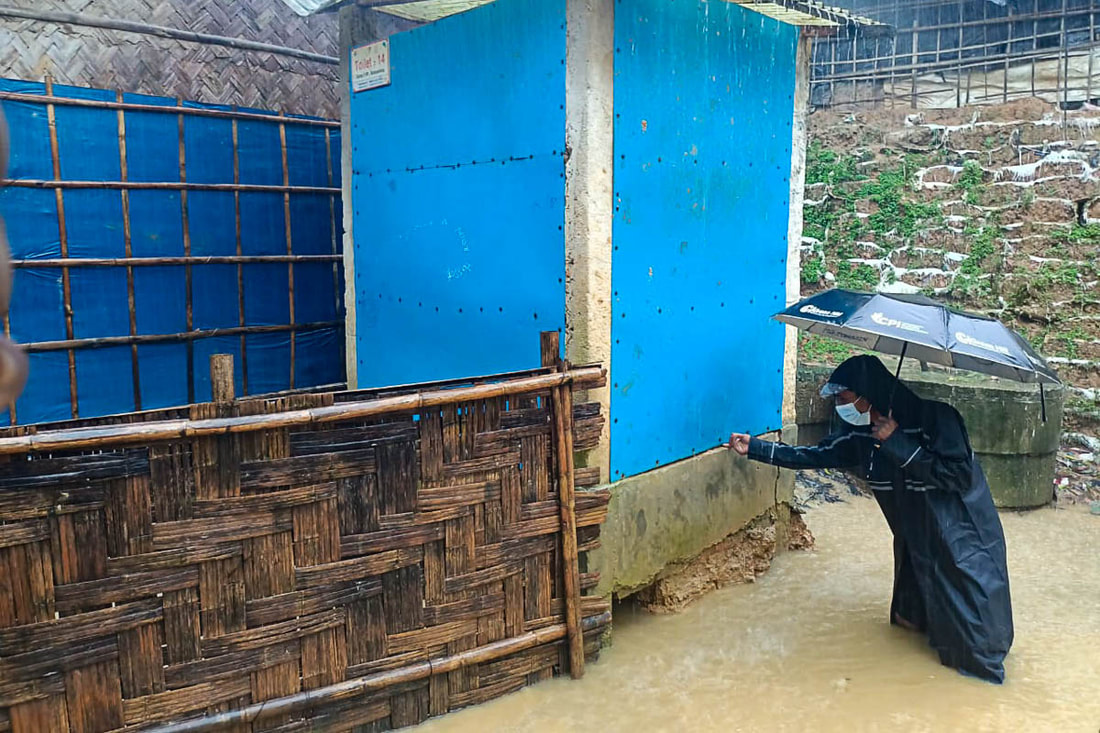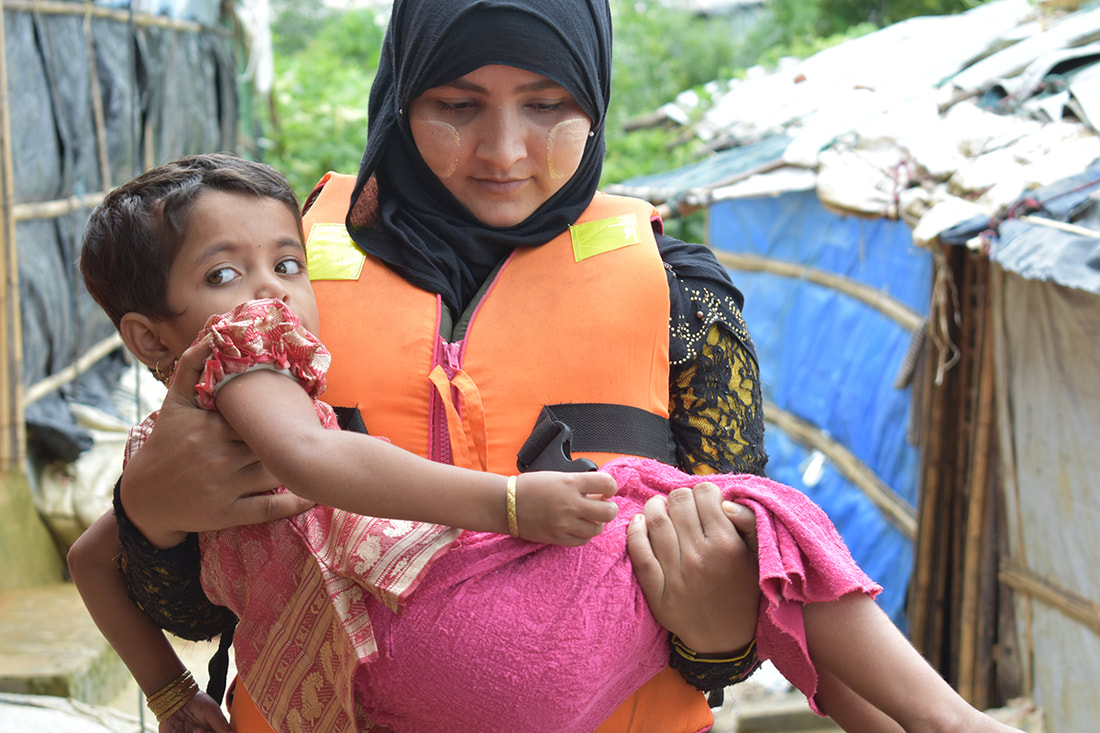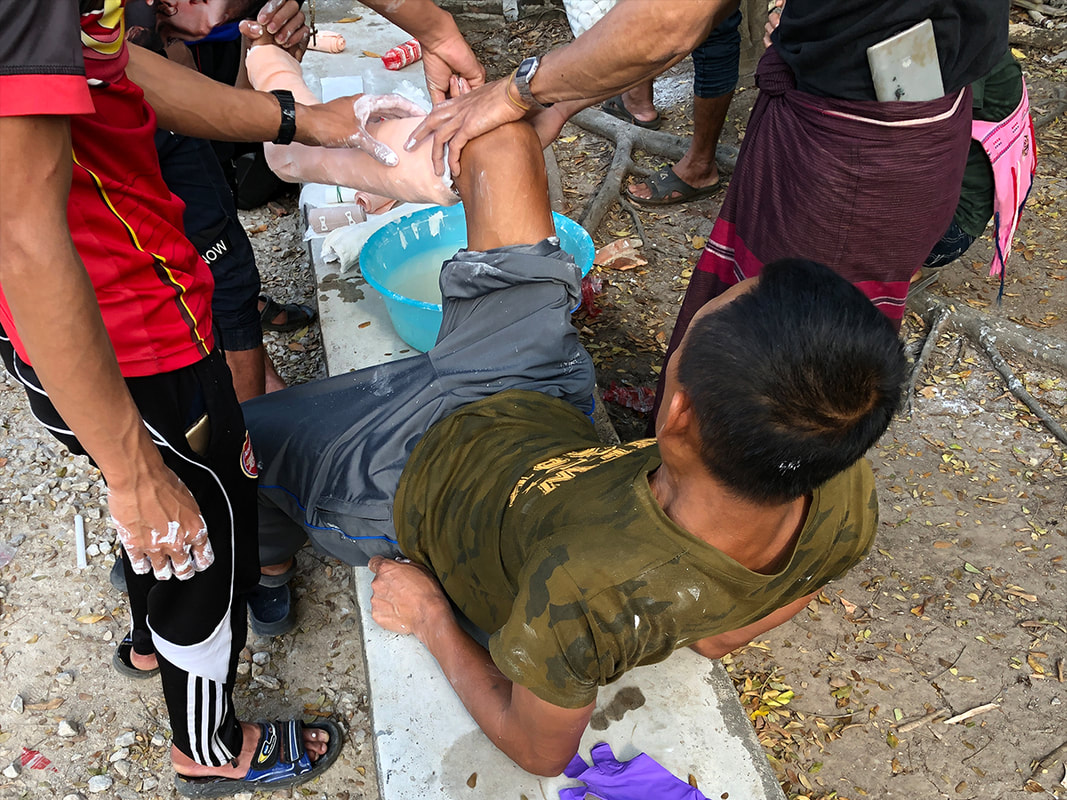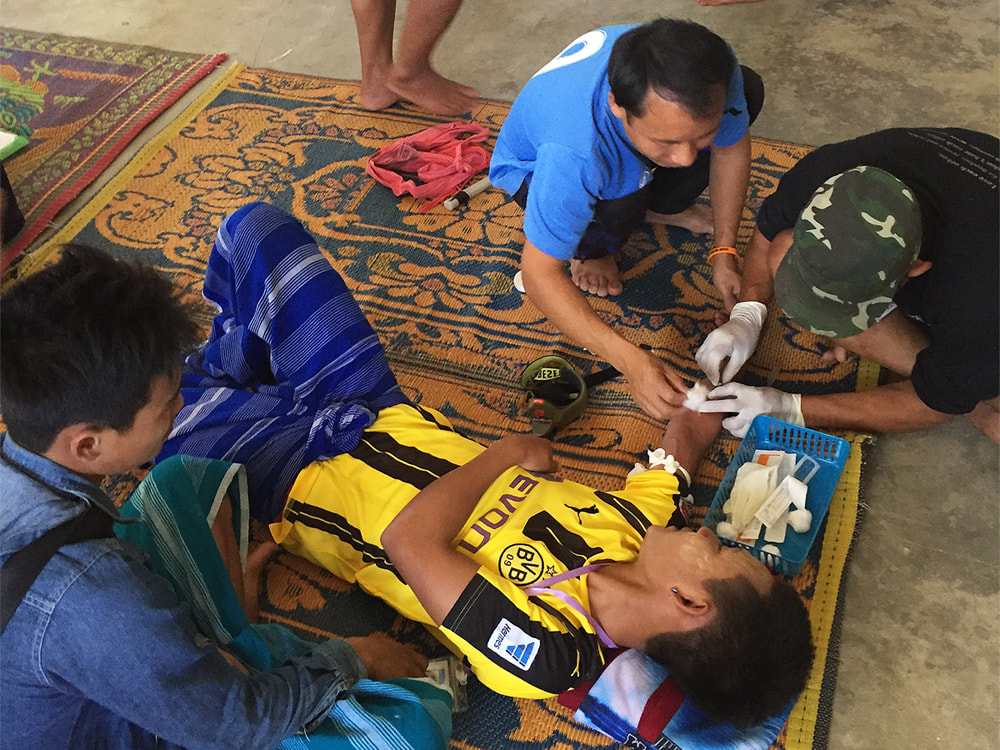|
Since late July, heavy rains in Kutupalong Refugee Camp, Cox’s Bazar, Bangladesh, have caused widespread flooding and landslides, damaging shelters and facilities, and displacing and affecting thousands of people. Rohingya volunteers supported by Community Partners International have been at the forefront of efforts to help those affected.
We hear from two Rohingya first responders, Rihana and Rohima, about their work to help communities in Kutupalong Refugee Camp, Bangladesh during emergencies.
In late January, for the 20th successive year, a group of emergency medics from Kayin State, Myanmar, gathered on the Thailand-Myanmar border to learn how to manage patients with major and minor traumatic injury and emergency medical illnesses. The six-day workshop was organized by the Karen Department of Health and Welfare (KDHW) with support from Community Partners International (CPI).
Back in April, 2018, Community Partners International (CPI) began training a network of Rohingya Community Health Volunteers (CHVs) embedded in refugee camps in Cox’s Bazar, Bangladesh, to provide first response services to their communities. Since then, the CHVs have responded to 75 requests for urgent assistance.
The precarious shelters that house the estimated 900,000 Rohingya refugees in Cox’s Bazar, Bangladesh, offer scant resistance against the monsoon rains now sweeping this region. Landslides and flash floods are significant and ever-present threats facing these communities seeking refugee from communal violence in northern Rakhine State, Myanmar. As part of wider disaster preparedness efforts, Community Partners International (CPI) is training and supporting a network of Rohingya Community Health Volunteers (CHVs), embedded in refugee communities throughout Cox’s Bazar, to provide safe rescue and first response services in emergencies.
Community Partners International (CPI) is working with HOPE Foundation for Bangladesh (HOPE) to provide ambulance services for the Rohingya refugee population in Cox’s Bazar, Bangladesh. CPI is helping HOPE to operate a fleet of three ambulances ready to respond day or night to medical emergencies in the refugee camps and transport patients quickly and safely to an appropriate health facility for specialist care. As well as upgrading the HOPE ambulances, CPI is helping to equip, support and train the ambulance staff.
The onset of sudden illness or a traumatic injury can be particularly dangerous for the 905,000 Rohingya refugees from Myanmar sheltering in and around Cox’s Bazar, Bangladesh. With populations dispersed over very large areas, often in remote and isolated locations, access to health services is limited. This is particularly the case at night, when many community clinics and other health services are closed. The arrival of the monsoon rains, and the greatly increased risk of floods and landslides, intensify the urgent need for rapidly accessible, community-based emergency health services for Rohingya refugees.
On February 3, 2018, the six-day Trauma and Emergency Management training workshop held at the Mae Tao Clinic in Mae Sot, Thailand, successfully drew to a close. The workshop was attended by 33 medics from 15 clinics serving conflict affected, under-served and hard-to-reach communities in southeast Myanmar where access to medical care for traumatic injuries is limited and landmine contamination remains high. This was the 19th consecutive year that this workshop has been held.
|
AuthorCPI Admin Archives
July 2024
Categories
All
|
|
|
COMMUNITY PARTNERS INTERNATIONAL
580 California St Fl 16, Ste 1658, San Francisco, CA 94104-1068, USA [email protected] +1 510 225 9676 We are a registered nonprofit 501(c)(3) Public Charity. TAX ID 94-3375666 |
©
Community Partners International





 RSS Feed
RSS Feed
